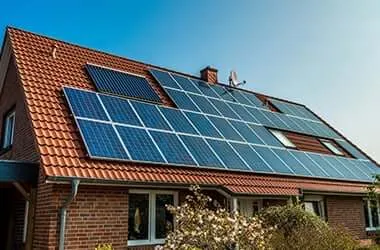solar panels for off grid living
Solar Panels for Off-Grid Living A Sustainable Solution
In recent years, off-grid living has gained popularity as more people seek to disconnect from conventional power systems and embrace a more sustainable lifestyle. One crucial component of off-grid living is the use of solar panels, which harness the sun's energy to provide electricity for homes and settlements that are not connected to the main electrical grid. This article discusses the benefits, installation, and considerations for choosing solar panels for off-grid living.
The Benefits of Solar Panels
1. Renewable Energy Source Solar energy is abundant and inexhaustible. By utilizing solar panels, off-grid residents can reduce their carbon footprint and reliance on fossil fuels. This transition to renewable energy is critical in combatting climate change and promoting environmental stewardship.
2. Cost Savings Although the initial investment in solar panels may be significant, the long-term savings can be substantial. By generating your own electricity, you can eliminate monthly utility bills and avoid rising energy costs. Many off-grid homeowners also report that their solar energy systems pay for themselves within a few years.
3. Energy Independence Living off-grid allows individuals to become self-sufficient. With solar panels, you can generate your own power, reducing reliance on external electricity providers. This independence is particularly appealing for those who live in remote areas or want to be prepared for power outages.
4. Low Maintenance Solar panels generally require minimal maintenance once installed. Cleaning the panels a couple of times a year and checking the inverter and battery systems is usually sufficient to keep the system running efficiently.
Installation Considerations
solar panels for off grid living

While installing solar panels for off-grid living seems straightforward, several factors must be taken into account to ensure an efficient energy system
1. Energy Needs Assessment Before installation, assess your energy consumption to determine the size of the solar panel system you need. Calculate the wattage of all appliances, lights, and devices you plan to use and ensure that your system can meet these energy demands.
2. Roof Orientation and Space The efficiency of solar panels is greatly influenced by their placement. Ideally, they should face south (in the Northern Hemisphere) and be free from shade. Ensure that you have adequate roof space or consider ground-mounted systems if your property allows.
3. Battery Storage Since solar energy generation fluctuates throughout the day, a reliable battery storage system is essential for off-grid living. Select batteries that can store enough energy to meet your needs during cloudy days or at night when solar generation is not possible.
4. Regulatory Requirements Check local regulations regarding solar panel installation. Some places may have specific zoning laws, permits, or building codes that need to be followed.
Conclusion
Solar panels are an effective and sustainable solution for off-grid living. They provide a renewable energy source, contribute to cost savings, and promote energy independence. However, proper planning and installation are key to maximizing their benefits. By assessing energy needs, considering installation options, and complying with regulations, individuals can successfully integrate solar panels into their off-grid lifestyle. Embracing solar energy is not just about living off the grid; it’s about fostering a more sustainable and responsible way of life for ourselves and future generations.
-
String Solar Inverter: The High-Efficiency Solution for Smart Solar EnergyNewsJul.14,2025
-
Revolutionizing Rooftop Energy with the Power of the Micro Solar InverterNewsJul.14,2025
-
Power Independence with Smart Off Grid Solar Inverter SolutionsNewsJul.14,2025
-
On Grid Solar Inverter: Powering the Future with Smart Grid IntegrationNewsJul.14,2025
-
Monocrystalline Solar Panels: High-Efficiency Power for the Future of Clean EnergyNewsJul.14,2025
-
Bifacial Solar Panel: A Smarter Investment for Next-Generation Energy SystemsNewsJul.14,2025







